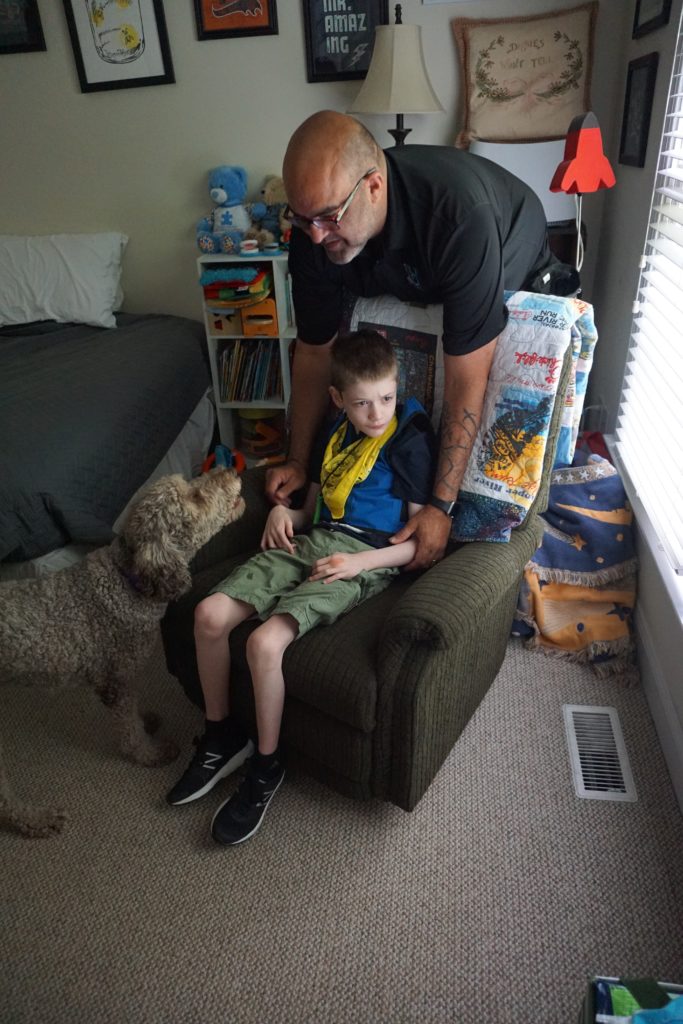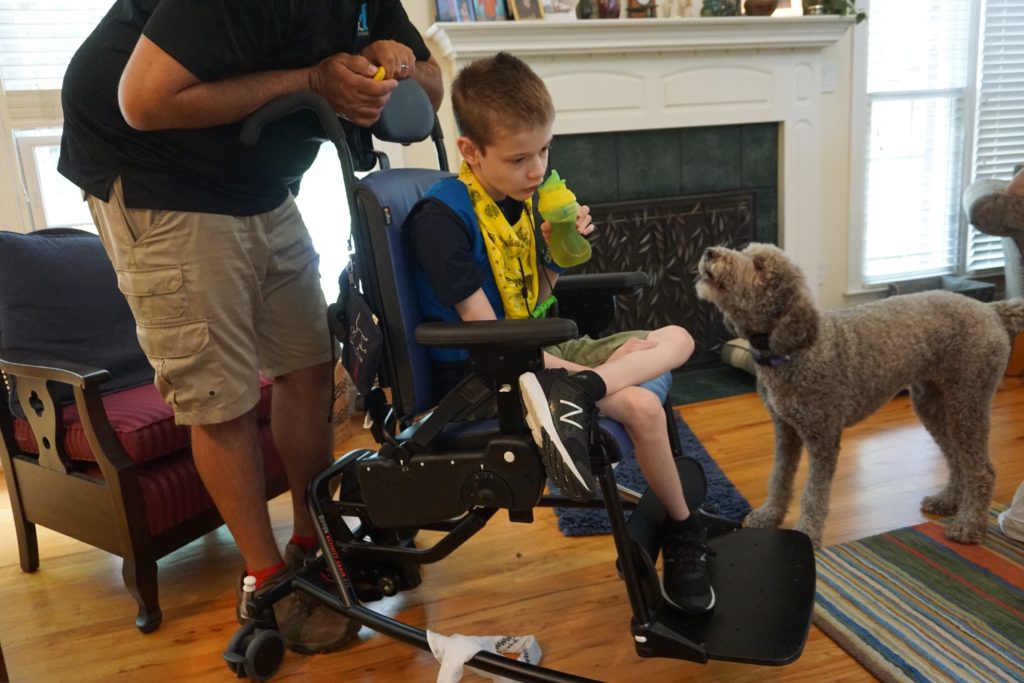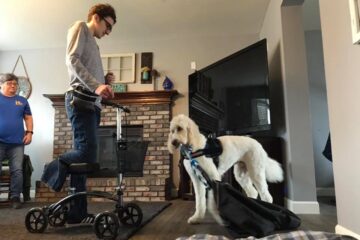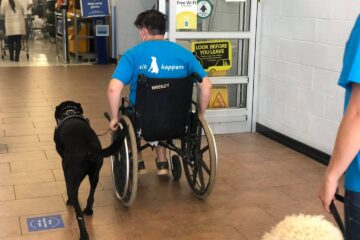For decades, dogs have been trained to perform tasks to help people with disabilities. A fully-trained service dog is able to provide their handler an improved quality of life, offering more independence and freedom. A service dog can make an immeasurable difference to the life of their human. When a human and service dog bond and build a relationship, incredible things can happen!
In this article, we are going to look at just one of the incredible ways a dog can be trained to assist people. We’ll explore how seizure alert and seizure response dogs can help those who suffer with epilepsy and make an immense difference to their handler’s quality of life.

How common is epilepsy in the United States?
In the United States, approximately 1.2% of the population have active epilepsy, which translates to around 3.4 million people. Based on these estimates from the CDC, three million epilepsy sufferers are adults and the remainder are children.
For those who experience seizures, living independently and traveling alone can be difficult – and sometimes even impossible. However, a reliable seizure alert dog can be trained to help! These incredible dogs provide their handlers with peace of mind and offer an unrivaled level of independence.

How can a service dog help someone who suffers with seizures?
When most people think of a service dog trained to assist with seizures, they are usually thinking of a Seizure Alert Dog. These are dogs trained to alert to a seizure before it even happens – which is an amazing feat. But it is less widely known that service dogs can be trained to assist with seizures in other ways, too.
A Seizure Assistance or Seizure Response Dog is a dog that is trained to assist their person during or after the seizure happens. A few examples of tasks these dogs can be trained to do are:
- Bark to alert a caretaker or guardian that a seizure is happening
- Activate a medical alarm so that help can be called
- Move their handler into a safe position
- Bring a bag with the handlers seizure medication
How to train a seizure service dog
There are several things to take into consideration before training a Service Dog to help with seizures.
Firstly, not all dogs are cut out for the job and some types of seizures are easier to train a dog to recognize than others. In order to train a dog to alert to a seizure, there must be a unique visual and/or audible cue that can be imitated by the trainer in order for the dog to recognize this as their cue to help.
There are some types of seizures that are harder to train for, such as atonic and absence seizures. These seizures usually do not result in physical or audible body reactions, so the success rate with these kinds of seizures is much lower than seizures such as grand mal, myoclonic, clonic and tonic seizures – which are much more obvious for the dog to recognize.
Although we don’t know precisely how seizure alert dogs know a seizure is coming – research is in its infancy – we know it is possible, because we have seen it time and time again! When most trainers are training a seizure alert dog, they teach the dog to alert to the visual and audible cue of the seizure itself. Through time and repetition, the dog begins to recognize and become familiar with the subtle signs their handler gives before a seizure happens and alert to that.

Nobody knows exactly what these small changes are, but it is believed the dogs pick up on a smell or visual cue that the handler is unaware of. Some dogs have been known to instinctively pick up on seizures before they happen. There is about a 10-20% chance of this. With training, the chance of a dog alerting increases to about 60-80%!
The effectiveness of a Seizure Alert dog greatly depends on the handler’s awareness and ability to recognize and respond appropriately by rewarding the dog for the alerting behavior.
Seizure Alert and Seizure Response Dogs are amazing lifesaving companions! The addition of a dog who can sense and make its owner aware of an incoming seizure can create entirely new confidence and possibilities for their handler. With consistency and practice, seizure alert dogs offer invaluable knowledge and insight that keeps their person safe.



0 Comments